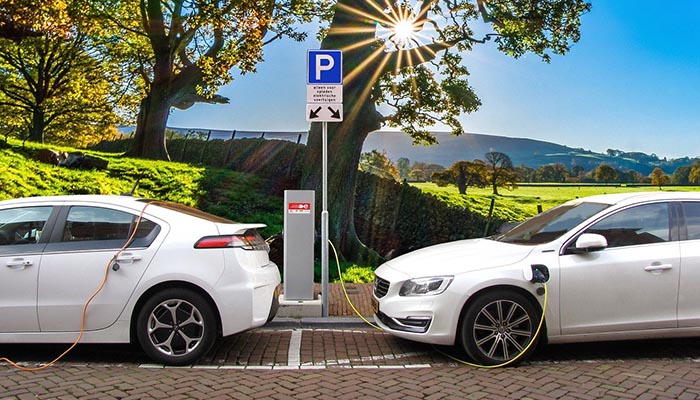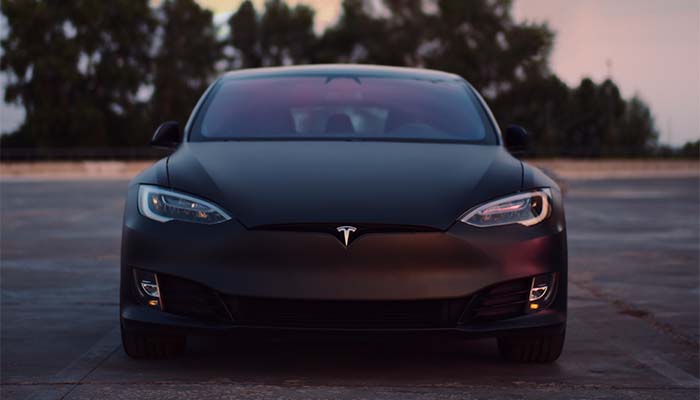
Updated December 14, 2021
The main difference between an electric vehicle and a gasoline-powered or conventional vehicle is that the electric vehicle is powered by an electric engine instead of a combustion engine powered by gasoline.
Electrical vehicles (EVs) are better for the environment because they have no local emissions, leave a smaller carbon footprint and create less sound pollution.
Conventional cars have been readily available since the early twentieth century, but electric vehicles have only been mass-produced since 1996. As a result, many people are not as familiar with electric vehicles, and there are many myths and misconceptions about them.
How Different Types of Cars Impact the Environment
There are two main ways that cars impact the environment. The first way is the impact of making the car on the environment, and the second is the impact of driving the car on the environment.
Producing a Conventional Car vs. Producing an Electric Vehicle
Some people think that it makes a bigger environmental impact to build or produce an electric vehicle than it does to manufacture a conventional one. However, building an electric vehicle doesn’t necessarily leave a larger carbon footprint. How large of a carbon footprint producing a vehicle leaves varies greatly between the make and model and depends on the region it is produced in.
Another false claim is that the production of the battery for an electric car is worse for the environment than the production of the conventional car system. There is actually not a dramatic difference in the carbon footprint left by these two different manufacturing processes. The bottom line is to not impact the environment when building a car; you would have to not build the car at all.
In the specific cases where producing the battery for an electric vehicle leaves a bigger carbon footprint than building a specific conventional vehicle, the electric option is still better for the environment because it has a far lesser impact on the environment during its overall lifetime.
Vehicle Emissions
Conventional vehicles that use a combustible engine for power emit byproducts from the combustion process like nitrogen oxide, carbon monoxide, and particulate matter. These by-products of the combustion process, or vehicle emissions, can damage the environment in many ways, including increasing air pollution and smog, releasing health-damaging carcinogens, and massively contributing to the global warming crisis.
A conventional vehicle can release more than four and a half tons of carbon dioxide in just one year, and that is only one of the many toxic elements in vehicle emissions.
Electric vehicles do not have local emissions. This means that they do not have any of these types of by-products released when you are driving them. So, as a result, one of the main benefits of driving an electric vehicle is that it does not affect the environment in this regard.
Noise Pollution
Electric vehicles are quieter than conventional vehicles, and this almost always becomes even more true as they age and need repair. Noise pollution can be damaging to home values and disrupt the everyday lives of those who live close to freeways and high traffic areas. Noise pollution caused by loud vehicles can also damage wildlife, affecting not just animals, but ecosystems as a whole.
Where Do Hybrid Cars Fit In?
Hybrid cars have both an electric and a gasoline-fueled engine. These cars get far better mileage and have reduced vehicle emissions than conventional cars. This means they are better for the environment than a conventional or gasoline-only powered vehicle. However, because they do use a combustion engine, hybrid cars are not as environmentally friendly as electric cars.
Electric Vehicles are the Best Choice
Hands-down electric vehicles are the best option for an environmentally friendly vehicle. Of course, it is always better to get out and take a walk or ride a bike, but it isn’t always practical. When you need to drive, choose an electric vehicle. It leaves a far lesser carbon footprint and does far less damage than a conventional vehicle.
If you are considering purchasing a car, you should be aware that environmental standards are changing. Depending on where you live, this may seriously impact your need to drive a more environmentally sound vehicle. Purchasing an electrical vehicle is not only good for the environment, but it is a practical option and sound investment as well.
Sources:
- https://www.cars.com/articles/are-electric-cars-better-for-the-environment-2-442320/
- https://www.wusa9.com/article/news/verify/environment-verify/electric-cars-not-worse-for-the-environment-than-gas-powered-cars/536-7e22bfa3-858a-4f97-9040-93461d2ae5ff
- https://www.edfenergy.com/for-home/energywise/electric-cars-and-environment
- https://www.samsara.com/guides/how-are-electric-vehicles-better-for-the-environment/
- https://fresh-energy.org/electric-vehicles-good-for-public-health-and-the-planet
- https://www.carbonbrief.org/factcheck-how-electric-vehicles-help-to-tackle-climate-change



